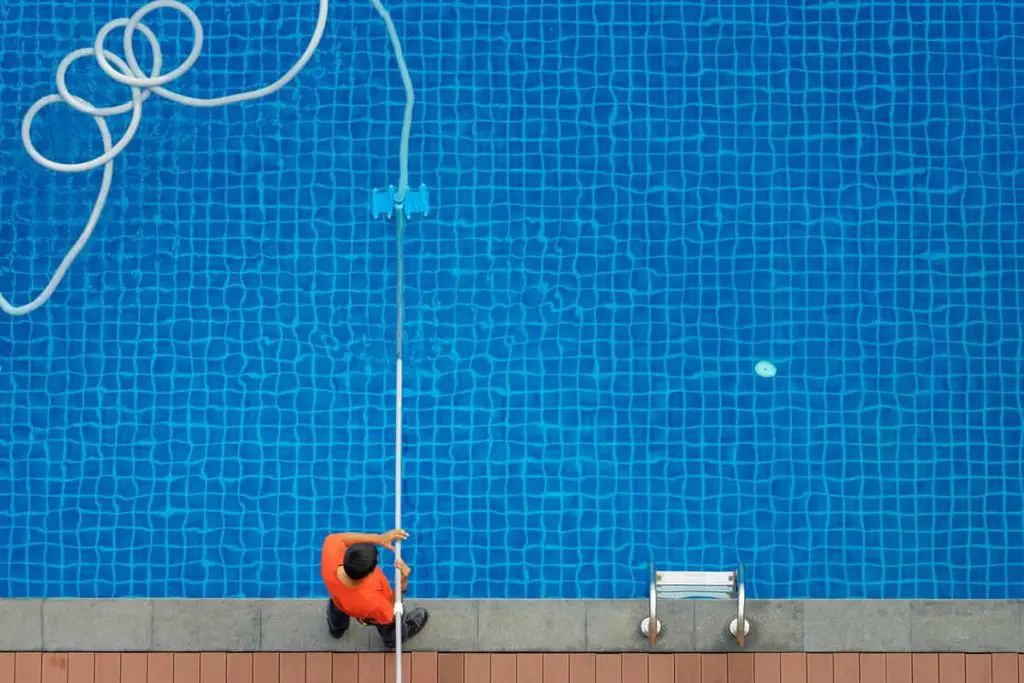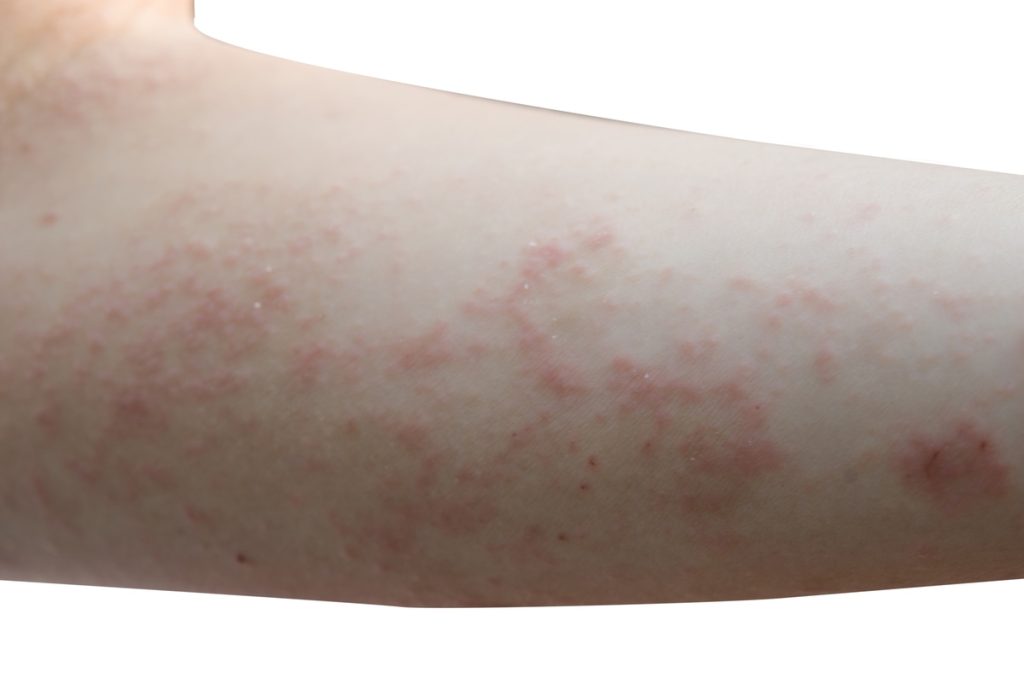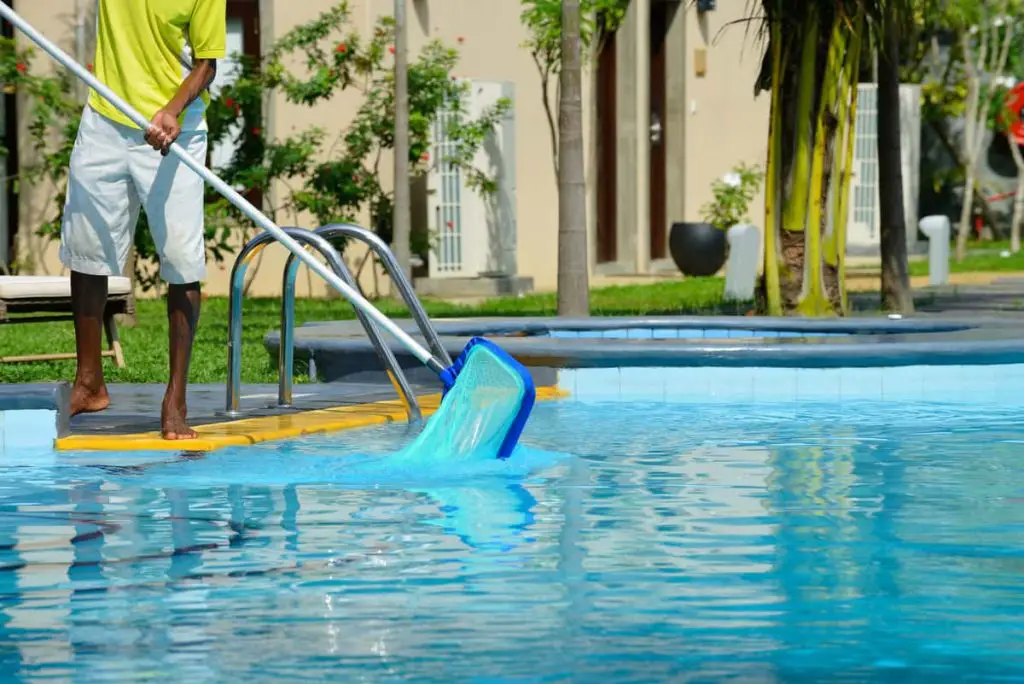If you own a swimming pool, you do your best to keep it immaculate, but that doesn’t mean the same rules apply elsewhere. Whether you’re swimming in a hotel pool or even using someone’s private pool, the same question will swirl through your mind. How often is the pool cleaned?
How often private and public pools are cleaned varies by the owner, but it should at least be weekly, if not daily. That’s the best way to limit the spread of bacteria that can linger in the water and cause illnesses to those who use the pool.
We’re sure you have more questions about private and public pool cleaning. That’s exactly what this article will explore. Ahead, we’ll check out CDC guidance on public pool cleaning and what hotel chains say about their policies. You won’t want to miss it!

How Often Are Private Pools Cleaned?
When we say private pools, we’re not referring to a homeowner’s pool in their backyard. In that case, how often they clean the pool is entirely at their discretion. Rather, we’re referring to apartment complexes, condos, and homeowner’s associations offering only a swimming pool for residents.
Hundreds of residents can live there depending on the size of the condominium or apartment complex. They might not all use the pool at once, but even if half do, that’s a huge turnout.
Although how often pool cleaning occurs is up to the homeowner’s association or the landlord, the rule of thumb is to clean the pool at least every day early in the morning before the pool opens to the public.
This doesn’t necessarily have to be deep-level cleaning. For example, the cleaning staff might save that until Mondays, as the weekends usually drive the highest turnout for pool use. After all, people are typically off from work on the weekends, so they can use the pool during hours unavailable to them during the week.
After weekend use, a deep clean and shock treatment will prepare the pool for the next week. This cleaning routine would then continue for the duration of the pool season.
How Often Do Hotels Clean Their Pools?
A hotel pool is sort of like a private pool in that it’s typically only guests of the hotel who use it, but it’s also somewhat public.
How often a hotel cleans its pool and facilities will vary. To show you the breadth of what a cleaning routine might look like, we found the cleaning policy of several hotel chains. Here’s what they have to say.
Best Western Hotels & Resorts
Best Western, in response to the COVID-19 pandemic, began a We Care Clean program that extends to the entirety of their hotels, from the breakfast bars to the public amenities, the front desk, and the hotels themselves.
According to the, We Care Clean program: “When allowed to open, public amenities such as fitness centers, swimming pools, and meeting rooms will be cleaned on closely monitored schedules with disinfecting chemicals. Each evening, these areas may also be sanitized using electrostatic fogging, ozone generators, or ultraviolet devices.”
Marriott International
Similarly, Marriott International has a Marriott Cleanliness Council put into place as a reaction to the spreading COVID-19 pandemic. Although swimming pools aren’t mentioned specifically, here is their policy, which seems like it would encompass pools.
“In public spaces, the company has added to its already rigorous cleaning protocols, requiring that surfaces are treated with hospital-grade disinfectants and that this cleaning is done with increased frequency…These new enhanced cleaning technologies include electrostatic sprayers to sanitize surfaces throughout the hotel.”
Interestingly, hotels have remained rather tight-lipped about how often staff at their various countrywide or worldwide hotels clean their swimming pools. If not for the COVID-19 pandemic, we might have never gotten this closer look into a hotel’s swimming pool cleaning policy. Make of that what you will.
Who Cleans Public Pools and How Often?
Now it’s time to venture into the murkiest waters, public swimming pools. These seemingly uncharted waters are cleaned, so let’s see how often.
Who Cleans Public Pools?
First, who are the ones with the unenviable job of disinfecting and cleaning a public pool? That depends. The pool club owner themselves might clean the pool, but more than likely, they contract a team of professional pool cleaners to do it for them.
How Often Are Public Pools Cleaned?
If you’re a member of your local pool club or you plan to be, before you dip even one toe in the water, you’re very eager to know how often the club cleans their pool.
The CDC has guidance on operating public swimming pools. Among their multitude of recommendations, the CDC suggests keeping the pool pH between 7.2 and 7.8 and tracking free chlorine levels up to 3 parts per million or ppm. They also recommend testing disinfectant and water pH hourly when the pool’s used often or otherwise twice a day.
Yet despite all this, there’s no suggestion on how often to clean a public pool. If a public pool is required to test the disinfectant levels at least two times daily, that suggests that cleaning could occur at least that often.
Then again, that would require the public pool to shut down twice per day for 30 to 60 minutes so the base cleaning and disinfecting could occur. When the pool is empty, the pool club is missing out on money, so maybe they don’t follow these rules.
Cleaning Frequency for Residential Pools
As we talked about in the intro, for residential pools, it’s at the pool owner’s discretion about how often they clean their pool. They could do it daily to stay on top of maintenance or somewhat more seldom.
At the very least, you need to clean your residential pool once per week. If it’s been a heavy swimming week where the kids were in the pool every day (or maybe you were), then consider cleaning it at least twice a week, maybe even every other day.
When you clean the pool, you want to skim the surface to remove bugs, sticks, leaves, surface dirt, and other debris. Check your pool pump traps and empty these, as they’re likely full of surface debris that floated in through the pump.
You’ll have to check the pressure of the water, test the pool water pH, test for free chlorine and top off with chlorine if necessary, and calibrate the other chemicals in the water. For more information on pool chemicals, check out The Beginner’s Guide to Pool Water Chemistry.
The Health Risks of Swimming in a Dirty Pool
You might wonder what’s the worst that can happen if you swim in a dirty public or private pool. It’d only be diarrhea, right? If only. You’re at risk of lots more health afflictions than you may realize, so let’s discuss them now.
Swimmer’s Itch
Referred to as cercarial dermatitis, swimmer’s itch occurs when you’re allergic to small parasites in the pool water. This skin condition is more common in natural bodies of water like oceans, ponds, and lakes, but it’s not unheard of in swimming pools either.

Swimmer’s Ear
If you have a case of swimmer’s ear or otitis externa, then your outer ear canal is infected. Keeping water in your ears after swimming can cause swimmer’s ear.
Shigellosis
The infection known as shigellosis is attributed to Shigella, a bacterium species. You might experience symptoms such as stomach cramps, fever, and diarrhea, even bloody diarrhea.
Norovirus
Contaminated food and water can both cause norovirus, an easily spread virus that can cause intense stomach pain, nausea, vomiting, and diarrhea.
Legionellosis
Legionella bacteria can lead to several conditions, including Pittsburgh pneumonia, Pontiac fever, and Legionnaires’ disease, which is also a form of pneumonia. Misty bacteria allow Legionella to spread.
Hot Tub Rash
If you spend long enough in a dirty pool, you could come away with a case of hot tub rash. This is a skin rash that leads to blisters filled with pus as well as bumpy, red, itchy skin.
Athlete’s Foot
You don’t have to be an athlete to develop athlete’s foot. This bacterial condition is usually caused by ill-fitting shoes, but fungi and bacteria in waters like hot tubs and swimming pools can also lead to foot discomfort.
Verrucas
A verruca is a foot growth that feels grainy and hard to the touch. You’ll most often see verrucas on the balls of your feet or your heels. Although verrucas seem harmless, they’re a viral condition and can spread to others, especially when your skin is wet.
Don’t be surprised if you don’t see the first verrucas until mid-fall after a summer of swimming in a public pool. These warts sometimes don’t sprout up for months at a time.

Conclusion
In a perfect world, all swimming pools–from residential ones to public and private pools–would be cleaned daily. However, at least weekly cleaning is better than nothing. If you own a swimming pool that you and your loved ones use, do them a favor and give it a thorough cleaning today!
